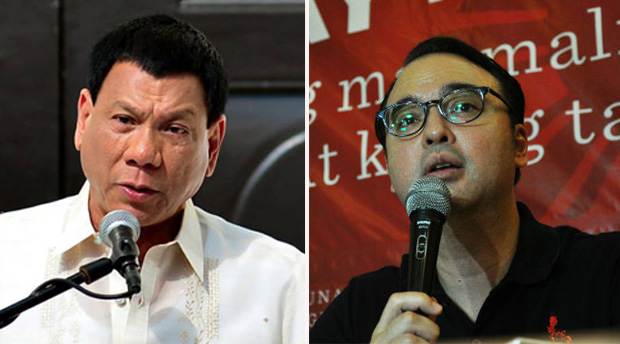The tandem of Davao City Mayor Rodrigo Duterte and Senate Minority Leader Alan Peter Cayetano is the most talked-about candidates on Facebook ahead of the first presidential debate last Sunday and barely three months before the upcoming national elections in May, data from the social networking giant showed.
READ: Duterte-Cayetano first 100 days: A period of cleansing
Facebook insights from November 30, 2015 to February 15, 2016 showed that the tough-talking Duterte was the top-performing candidate on the said social networking site, with 59 percent of unique users engaging in conversation related to him. He was followed by administration bet and former Interior Secretary Mar Roxas with 42 percent.
Independent candidate Sen. Grace Poe got 31 percent, opposition leader Vice President Jejomar Binay garnered 20 percent, and the feisty Sen. Miriam Defensor-Santiago, who has the most followers on social media among all the presidential bets, got 13 percent.
Cayetano topped conversations relating to vice presidential candidates with 49 percent, followed by Sen. Ferdinand “Bongbong” Marcos Jr. (37 percent), Camarines Sur Rep. Leni Robredo (30 percent), Sen. Francis Escudero (14 percent), and Sen. Gringo Honasan (2 percent).
READ: Social media makes campaign easier
Transparency was the most talked-about election-related issue with 64 percent of unique users interacting in conversations related to such, followed by economy (34 percent), education (25 percent), social welfare (21 percent), defense and foreign policy (21 percent), health (16 percent), infrastructure (7 percent), environment (2 percent) and trafficking (1 percent).
Elizabeth Hernandez, head of Asia-Pacific Public Policy for Facebook, said a total of 8.2 million Filipinos or 16.7 percent of the 49 million monthly active users in the country have participated in election-related conversations on the said social networking site from November last year to February 15, 2016, generating 45 million election-related interactions.
READ: Social media and the 2016 national elections
Hernandez noted that more and more people, the public and politicians alike, are turning to the social networking site to talk about politics and policy issues, engage in debates and reach out to one another.
“Facebook is the destination for authentic conversation about politics. It’s a place for citizens to learn about candidates, for friends to debate political issues, and for candidates to reach voters,” Hernandez said in a statement.
“Candidates are using Facebook to reach citizens directly and personally. They are having unfiltered conversations about important public policy issues and getting honest feedback from voters,” she added. RAM
